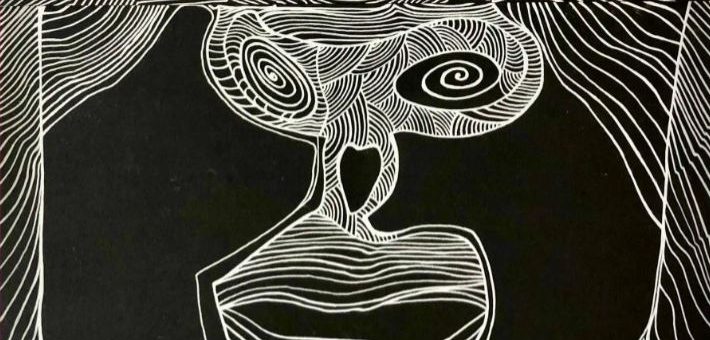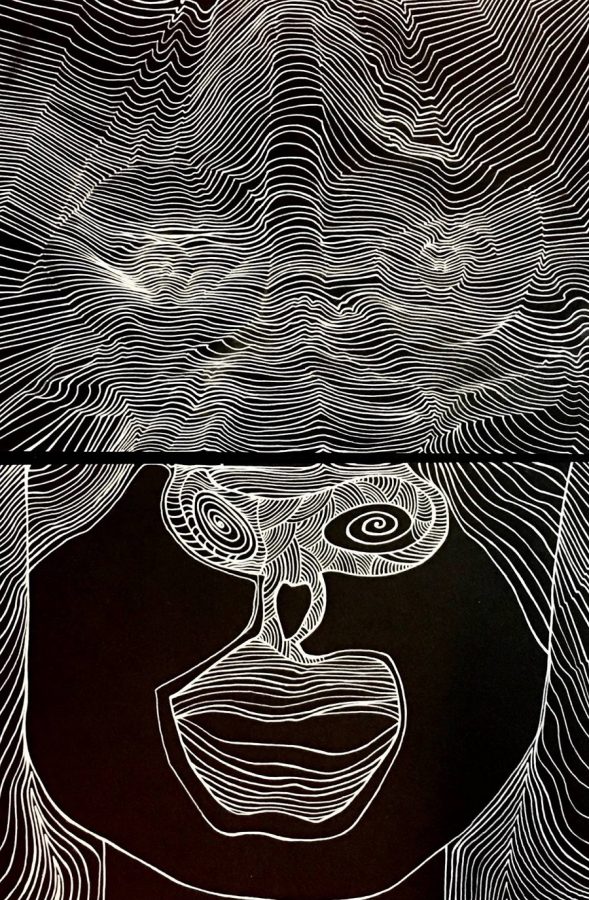Ramón Smith
Pareces buen tipo, pero…
4 July, 2020
En sexto grado recuerdo mirar al otro lado del aula a una hermosa niña que acababa de transferirse a mi escuela. Tenía el pelo largo, negro y acentuado con grises prematuros, piel aceitunada y una sonrisa que iluminaba todo el salón. Rápidamente comencé a correr la voz de que iba a pedirle que fuera mi novia. La noticia llegó a los oídos de su hermano mayor, a quien había conocido previamente por amigos en común. Él, entendiendo que cuidaba a su hermana, decidió dejarme saber qué pensaba de mis intenciones. Recuerdo sus palabras: “Sé que te gusta mi hermana y pareces buen tipo pero … ¡eres negro!” Sin ira, ni disgusto, ni aversión en su voz. Solo una simple declaración que me dejaba saber sus sentimientos al respecto.
¿Les cuento un poco sobre mi infancia? Nací en Chicago y a los dos años mi familia decidió mudarse a Puerto Rico. Mi abuela se iba de vacaciones familiares y amaba tanto la isla que decidió radicarse allí permanentemente. Mi familia estaba compuesta por mi abuela y sus hijos: tres hembras y dos varones; mi madre era la del medio y estaba en la universidad al momento de la mudanza. Más tarde, cuando se graduó, se unió a nosotros. Mis padres nunca quisieron casarse y mi papá decidió quedarse en Chicago, lo que significó que fue prácticamente inexistente en mi vida. Después de luchar para salir adelante, mi madre recibió una gran oportunidad de empleo y tuvo que mudarse a otra ciudad para estar más cerca del trabajo. Alquiló una casa, compró un auto nuevo y me inscribió en una escuela militar. Ella esperaba que esto último reemplazara la figura paterna que necesitaba para crecer y tal vez me infundiera algo de sabiduría y disciplina. De si funcionó, es una historia para otro momento…
Ahora, volviendo a la historia original: Cuando el hermano de la niña pronunció esas palabras, realmente no me molestó porque no creo que fuera consciente de lo que verdaderamente quería decir. Era como si hubiera dicho: “vives demasiado lejos”, o algo así. Es que dejé Chicago a los dos años y no me habían dado un sermón formal sobre el racismo. Que yo recuerde, nunca hubo un discurso de desigualdad racial en casa con mi familia cuando era joven. Más tarde entendí que mi familia estaba compuesta de negros, mexicanos, blancos, etc., así que creo que vi la mezcla como algo normal: personas distintas que se unían por amor y creaban una nueva vida.
Entonces, en la escuela, al aprender la historia de Puerto Rico y el origen de su gente, aprendí que eran una mezcla de personas de diferentes países (españoles, africanos y taínos), y nunca pensé en cómo se unieron estas personas y cómo se sentían unos con otros. Nos enseñaron la historia como algo simple, y así es como lo vimos, sin preguntas sobre la esclavitud, el genocidio, o la vida después de la esclavitud. ¡Éramos una gran familia feliz! Pero a medida que iba creciendo, la inocencia comenzó a desvanecerse, ya que era evidente que había más de lo que se veía a simple vista. Después de graduarme de la universidad, decidí regresar a Chicago para seguir la carrera en actuación. Empecé a trabajar de barman en un bar de propietarios negros; no fue intencional, sino que fueron los primeros en contratarme después de presentar la solicitud en muchos otros lugares. En los años que trabajé allí, fui educado en nuestra historia real como personas negras en este país. Los libros de historia en la escuela parecían cuentos de hadas en comparación con lo que aprendí; ¡Ahora estaba expuesto a la matriz de mi desarrollo!
A medida que pasaron los años, comencé a ver cada vez más cómo nos veían en Estados Unidos, tal vez no tanto por experiencias personales sino mirando y aprendiendo de otros en la historia y el presente. Recuerdo haber contado la historia del sexto grado ya adulto, y tuve que reírme, ya que Puerto Rico es un verdadero crisol, con gente que es una mezcla de diferentes países y, por lo tanto, sin negros, blancos ni nativos. Puede que haya diferentes tonos de tez, sí, pero todos son una sola persona, una cultura. El muchacho de la historia, con su mente cerrada, dijo lo que dijo creyéndose algo que no era: blanco. Es como ser un niño interracial y sentir que eres mejor que tus hermanos porque tienes una tez más clara. Lo que no sabía es que si su familia se hubiera mudado a Estados Unidos, habría vivido el otro lado del racismo.
Una de las cosas que aprendí al regresar a Chicago es que en Estados Unidos hay una cosa llamada “segregación” que no ha permitido que este país se convierta en un solo pueblo, una cultura. Estados Unidos está lleno de personas de diferentes países que se consideran estadounidenses porque nacieron aquí o se les permitió hacerse ciudadanos. Este país se cree un crisol de culturas, pero realmente es como una cena congelada: cada tipo de alimento en su propio compartimento. Es lamentable ver que muchos luchan duro para mantenerlo así, porque mientras eso sea cierto, nunca habrá un verdadero rostro ni raza estadounidense.
___________________________________
Ramon Smith es actor, comediante y productor en la ciudad de Chicago. Es miembro del colectivo del Teatro Aguijón y cocreador de Mr. and Mrs. Smith Comedy.
Traducción: Miguel Marzana
Ilustración: Amado Martínez Lebrón
Tinta blanca sobre papel negro
amadomartinezlebron.wordpress.
You seem to be a cool guy but…
I remember gazing across the classroom in the sixth grade at this beautiful girl who just transferred to my school. She had long black hair that was accented with premature grays, olive skin and a smile that brightened the room. I quickly began to spread the word that I was going to ask her to be my girlfriend. As the word spread, it reached the ears of her older brother whom I had met previously through mutual friends.
Having his sister’s best interest in mind he decided to let me know how he felt about my quest for her heart. His words as I remember: “I know you like my sister and you seem to be a cool guy but…you are black!”.
No anger, nor disgust or dislike in his voice, just a simple statement letting me know his feelings on the matter. A bit on my childhood if you will? I was born in Chicago and at the age two my family decided to move to Puerto Rico.
My grandmother would go for family vacations and loved it so much that she decided to make it her permanent home. My family consisted of my Grandmother, her three daughters and two sons. My mom was the middle sister and was in college at the time of the move. She later joined us when she graduated.
My mom and dad chose not to marry and he decided to stay behind in Chicago, which means he was pretty much non-existent in my life. After a few struggles my mom received a great job opportunity and had to move to another town to be closer to the job. She rented a house, bought a new car and signed me up in a military school.
She was hoping it would replace the father figure I needed growing up and maybe instill some wisdom and discipline in me. Did it work? That’s a tale for another time! Now, back to my story. As the girl’s brother uttered the words, it really didn’t bother me because I don’t think I was aware of what he truly meant.
It was as if he had said: you live too far, or something. See, I left Chicago at the age of 2 and was never introduced formally to racism. As I recall there was never any speech of race inequality in my family’s home when I was young.
I later learned that my family was composed of Black, Mexican, White etc. so I guess I saw the mixture as normal. Different people coming together out of love and creating new life. So in school, learning the history of Puerto Rico and the origin of its people – a mixture of people from different countries (Spaniards, Africans and Tainos) it never dawned on me how these people were put together and how they felt about one another.
It is taught as simple history and that’s how we saw it. No questions on slavery, genocide or the life after slavery. One big happy family! But as I grew the innocence began to fade as it was evident that there was more than meets the eye. After college I decided to move back to Chicago to pursue a career in acting. I got a bartending gig at a black owned bar. Not intentionally but they were the first to hire me after applying at a few other places that were non black owned.
In the years I worked there, I was schooled on our real history as black people in this country. The history books in school seemed like fairy tales compared to what now I learned; I was now exposed to the matrix! As the years went by I began to see more and more how we were viewed in the US.
Maybe not so much in personal experiences but by watching and learning from other’s, in history and the present. I remember telling the sixth grade story as an adult and had to laugh because Puerto Rico IS a true melting pot, as its people are a mixture of different countries and so there is no black or white or native.
There may be different shades but they’re all one people, one culture. So in the guy’s small mind he said what he said believing something he was not; white. It’ s kind of like being an interracial child and feeling you are better than your siblings because you have a lighter complexion.
What he didn’t know, had his family moved to the U.S., is that he would have seen himself on the other side of racism. One of the things I learned moving back to Chicago is that America has this thing called segregation which hasn’t allowed this country to become one people, one culture.
America is full of people from different countries who are considered American because they were either born here or allowed to become citizens. This country is called a melting pot but truly is a TV dinner; each food group in its own section and sadly many fight hard to keep it that way. And as long as that is true, there will never be a true American face or an American race.
______________________________
Ramon Smith is an actor, comedian and producer in the city of Chicago. He is an ensemble member of Aguijón Theater and co-creator of Mr. and Mrs. Smith Comedy
Translation into Spanish: Miguel Marzana
Illustration: Amado Martínez Lebrón
White ink on black paper
amadomartinezlebron.wordpress.


